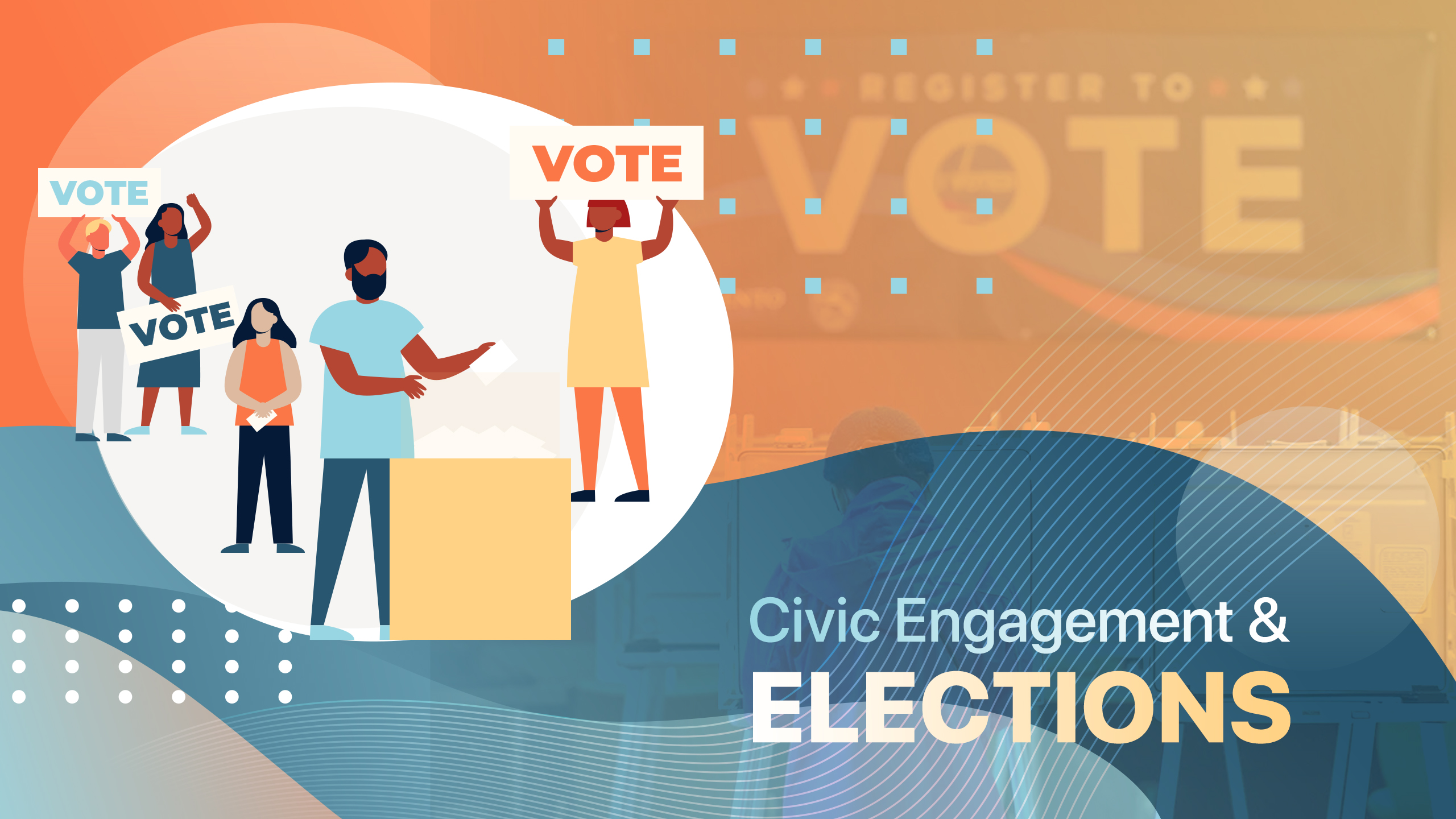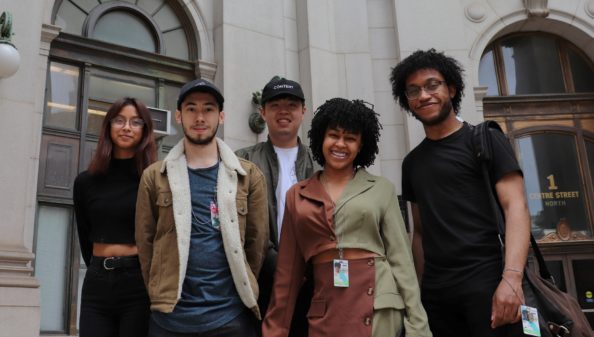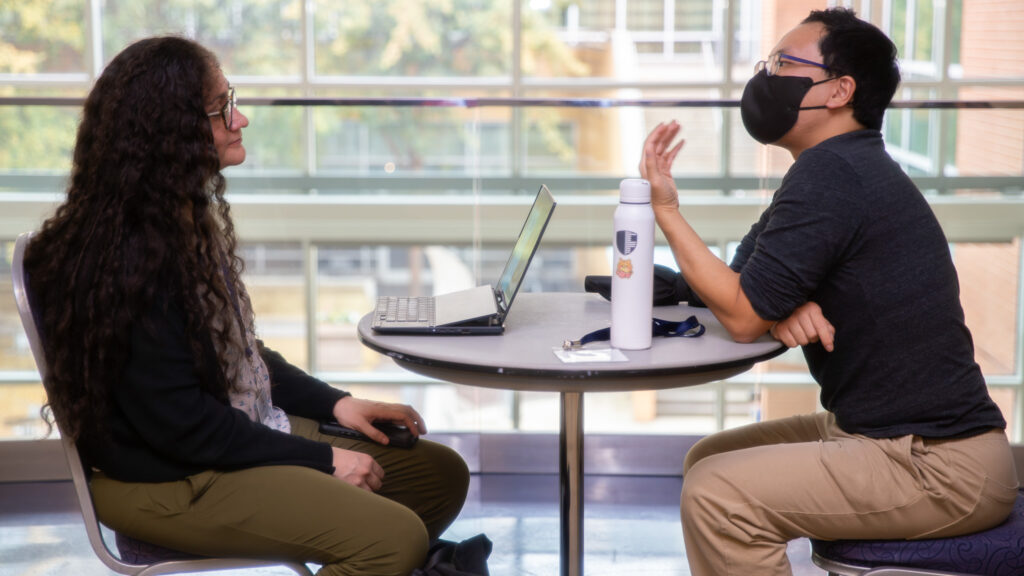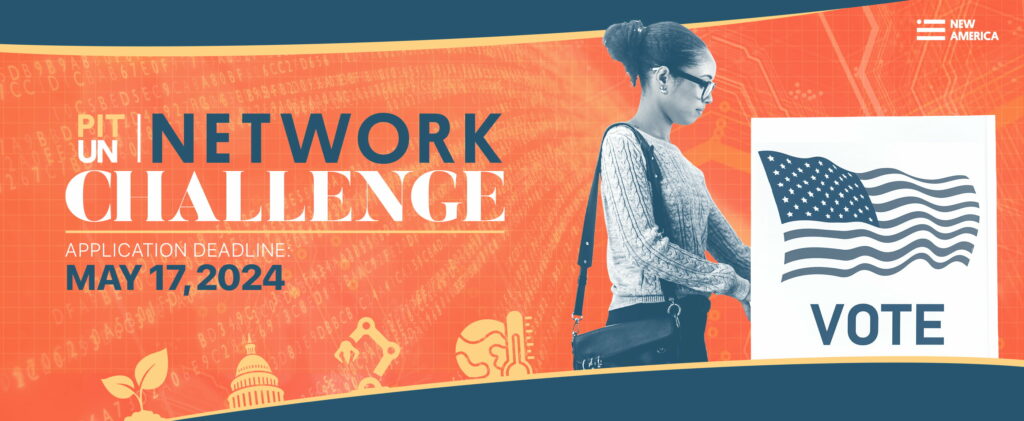
The PIT UNiverse Newsletter
April 2024
We all know by now that 2024 is a major year for elections around the globe. But democracy, as a system, is about more than elections. Democracy depends on the ability to create communities through shared interests and values, to identify and articulate problems, and to work with other groups to develop and advance solutions. Elections are an important piece of the puzzle, but democracy as a whole depends on year-round, lifelong practices of civic engagement.
This month, learn how a New York City fellowship program is preparing a new generation of civic leaders who can leverage data to help solve complex public problems in partnership with communities they seek to serve (City University of New York & BetaNYC). Our PIT in Practice Profile shows how Georgia Tech is building an interdisciplinary community of researchers and practitioners to support secure and accessible elections here in the U.S. If you are doing election-focused work this year, we’d love to learn more. Fill out this form, and we’ll be in touch.
The 2024 Network Challenge is now open! Read on to learn more about this year’s focus areas and requirements, and how you can join our Evaluation Committee. Our Resources this month include an update to Federal Funding Opportunities, along with guides and reports from PIT-UN members on a range of voting and civic engagement issue areas.
Over 150 students attended the Tech for Change Civic Tech Hackathon in February at Boston University. Read the recap in our News & Opportunities section, and suggest ideas for the 2025 Hackathon. And don’t forget: Papers for the new special issue on public interest technology from WPI & De Gruyter Press are due June 1.
Growing NYC's Civic Tech Ecosystem

PIT in Practice: Georgia Tech

The 2024 Network Challenge application is now open! This annual grant program drives equitable innovation in technology across academia, government, industry and civil society.
Challenge applications are reviewed by an Evaluation Committee of leaders from across industries, who recommend promising projects for funding. Learn more and apply to join by May 4.
Parks and libraries strengthen communities. So can thriving digital public spaces.
New_ Public, a nonprofit R&D lab, is starting a program to help support the people who run digital spaces for their local neighborhood, town or city.
If you’re the admin or mod of a local Facebook group, forum, listserv or other kind of digital space that aims to build connections between people in your local area, get in touch with New_ Public here. If you know someone who fits this description, please help us pass this along.
Guide to Federal Funding Opportunities
In 2022, PIT-UN published a Member Guide to Federal Funding Opportunities to help researchers and administrators seek and procure federal grant funding for long-term institutionalization of PIT programs. To help our members stay up to date, we’re publishing a 2024 Update with information on PIT-related federal funding opportunities that are currently open. Review the opportunities here.
A Voter’s Guide to Generative AI
Just a few years into their public rollout, generative AI tools are already influencing elections. The Block Center for Technology and Society at Carnegie Mellon University created A Responsible Voter’s Guide to Generative AI in Political Campaigning to help voters recognize AI-generated content, understand its implications for democracy and contact political campaigns and elected officials about policies and legislation.
To learn more about this effort and the Responsible AI program at Carnegie Mellon, contact Cole Gessner.
Trust & Safety Work: A Primer
Trust and Safety (T&S) work provides a first line of defense against mis- and disinformation, online extremism, harassment campaigns, and other tech-enabled threats to our civic health. T&S also works upstream of these problems by writing policy, analyzing data, and working with product and legal teams within companies.
In a new report, Toby Shulruff (Arizona State University) defines the six main functions of T&S work, the skills and personal qualities required, major challenges inherent to the work, and what individuals and companies can do to promote worker well-being. Read and download the report here.
Managing Risks & Threats to Independent Researchers
Community scientists, journalists, nongovernmental organizations, and academics who research the negative impacts of technology often come under attack. A new report from the Citizens and Technology (CAT) Lab at Cornell University identifies common threats and risks these researchers face and identifies lessons for practitioners and policymakers about how to manage them.
At the February 2024 Tech for Change Hackathon, students worked in teams to prototype tools for healthcare, voting access, mutual aid, waste management and more while building community and learning through hands-on workshops. Read the recap and inform the 2025 Hackathon here.
The Journal of Integrated Global STEM is publishing a special issue on public interest technology. The editors seek topics that span a range of issues, including ethical design, citizen science community-centered technology, data governance, mitigating AI bias, technology for public good, tech equity and inclusion, and open-source science. Learn more & submit proposals by June 1.
Tech to Gov is hosting a Virtual Forum & Job Fair for senior-level AI practitioners on April 18. Learn more about this opportunity to connect with state and federal agencies.
Cleveland State University College of Law Center for Cybersecurity and Privacy Protection hosts its annual conference on April 18-19. PIT-UN members are invited to join online or in-person at no cost. Reply to this email for a special registration code. Learn more & register here.
Fordham will host a PIT Gathering in New York City on April 29, featuring roundtables, workshops, and a fireside chat between PIT expert Afua Bruce and Fordham Law’s Zephyr Teachout. Learn more & register.
Howard University hosts a free Summer Data Science Bootcamp May 26 - June 23 for all levels through a social justice lens. This virtual bootcamp for ages 14+ covers introduction to Python, fundamentals of data analysis and hands-on experience with Pandas and NumPy. Join their listserv to receive all registration information.
George Washington University announced a PIT Scholars program to facilitate cross-disciplinary research and teaching, along with new collaborations within and beyond the university. Learn more about GWU’s ongoing commitment to public interest technology.
The Federal Advisor Certificate Program enables career services staff to become experts in all aspects of the federal hiring process and gain a deep knowledge of the wide range of federal career opportunities. This summer program from the Partnership for Public Service runs June 17 - August 2. Learn more & register.
David Lee (University of California Santa Cruz) spoke in March about Tech4Good, a research lab that engages more than 200 undergraduate students each year through user research, UI/UX design, web development, and machine learning to support community engagement. Watch here.
Fordham will host a PIT Gathering in New York City on April 29, featuring roundtables, workshops, and a fireside chat between PIT expert Afua Bruce and Fordham Law’s Zephyr Teachout. Learn more & register.
Interested in writing for this newsletter, or having your program featured?
We’re seeking writers and projects for…
- May: Data Science (submissions due by April 25)
- June: PIT & Humanities (submissions due by May 23)
- July: Artificial Intelligence (submissions due by June 20
Fill out this form, and we’ll be in touch.
-Andreen & the PIT-UN Team

